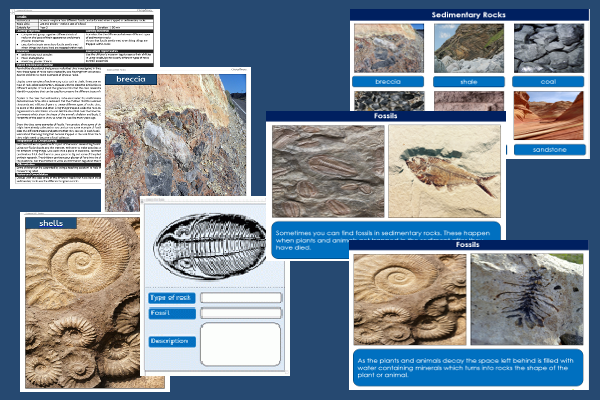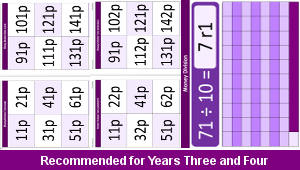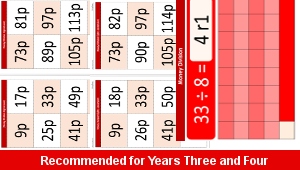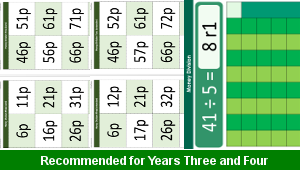Home > Key Stage Two > Science > Year Three Planning > Rocks
Lesson Seven – Fossils

This science teaching pack for Key Stage Two gets the children to explore and record how a range of different fossils can be formed when they become trapped in sedimentary rocks over time.
The class can produce a label for a museum exhibition to display information and facts about a particular type of fossil to describe its unique properties.
Download this teaching pack including a lesson plan, classroom activities and an interactive presentation to explore and record how a range of different fossils can be formed when they become trapped in sedimentary rocks over time
Activities in this teaching pack include display posters to identify and describe different types of sedimentary rocks and the fossils that can be trapped in the materials and a template to select and record facts and information about a type of fossil found in a sedimentary rock.
The interactive presentation gets the children to explore and record how different fossils can be formed when they become trapped in sedimentary rocks.
This lesson is part of a science scheme of work to get the children to identify, compare and classify different types of rocks, soils and fossils according to their matching material properties for appearance, texture and substance. There are teaching activities for shared learning, differentiated worksheets to support independent learning and interactive presentations to introduce concepts and key skills.
-

Money Division
Model and record how to divide a selection of money amounts by different numbers with quotients using remainders
-

Money Division Tens
Practise selecting and dividing a range of different money amounts by ten with matching remainders in the number quotients
-

Money Division Eights
Practise selecting and dividing a range of different money amounts by eight with matching remainders in the number quotients
-

Money Division Fives
Practise selecting and dividing a range of different money amounts by five with matching remainders in the number quotients
